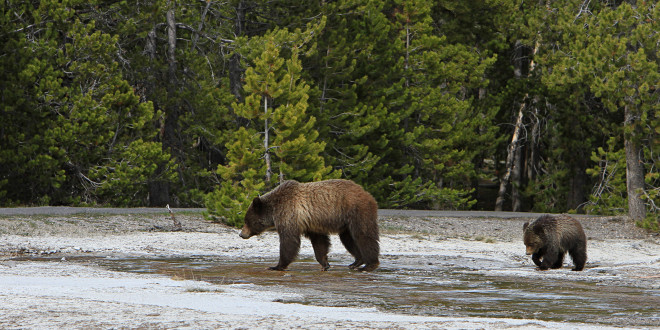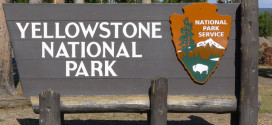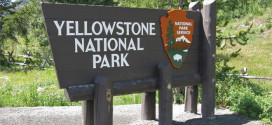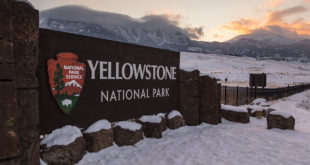The Interagency Grizzly Bear Study Team (IGBST) will be trapping bears around the Greater Yellowstone Ecosystem August 22 through October 31, 2017.
According to an IGBST press release, trapping will occur in “several remote sites within Yellowstone National Park,” where bears will be anesthetized and fitted with radio collars. Researchers will gather scientific samples as well. From the press release:
Team members will bait and trap bears at several remote sites within Yellowstone National Park. Once trapped, the bears are anesthetized to allow wildlife biologists to radio-collar and collect scientific samples for study. All trapping and handling are done in accordance with strict protocols developed by the IGBST.
None of the trap sites in the park will be located near any established hiking trails or backcountry campsites, and all trap sites will have posted warnings for the closure perimeter. Potential access points will also be posted with warning signs for the closure area. Backcountry users who come upon any of these posted areas need to heed the warnings and stay out of the area.
The Interagency Grizzly Bear Study Team was established in 1973 to collaboratively monitor and manage grizzly bears in the ecosystem on an interagency basis. The gathering of critical data on the bears is part of a long-term research effort and required under the 2016 Yellowstone Grizzly Bear Conservation Strategy to help wildlife managers devise and implement programs to support the ongoing conservation of Yellowstone’s grizzly bear population.
Earlier this year, the U.S. Fish and Wildlife Service announced they would remove Yellowstone grizzlies from the Endangered Species List, prompting uproar from conservationists, environmentalists and Native American tribes, among other groups.
Indeed, shortly after the USFWS announcement, a coalition of conservation and environmental groups announced they would sue the agency over its decision. A few weeks later, a coalition of Native tribes announced they were suing the USFWS on religious grounds.
State wildlife agencies in Montana, Wyoming and Idaho assumed management duties Monday, July 31, 2017. Several agency spokespersons announced they were not interested in kickstarting any hunting seasons, a point of concern for many grizzly advocates.
 Yellowstone Insider Your Complete Guide to America's First National Park
Yellowstone Insider Your Complete Guide to America's First National Park





